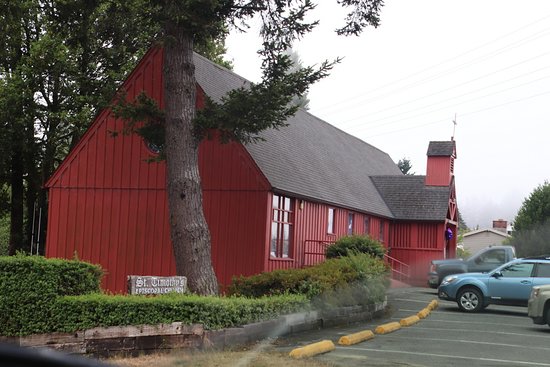A diocese of Oregon parish has prevailed in litigation with the City of Brookings after a federal judge granted St Timothy’s Episcopal Church motion for summary judgment against the town, after it attempted to shutter its food kitchen.
Since 2009 the parish has provided free lunchtime meals to the needy. When the COVID pandemic reached Brookings other church feeding programs were shuttered, but St Timothy’s increased the frequency of its meals offered to the community. In early 2021 the city issued a permit to the church to host individuals living out of their cars on the church property. However the surrounding community objected to the presence of vagrants in the neighborhood and launched a petition drive to force the town to revoke the permit and clear the homeless out.
In October 2021 Brookings enacted an ordinance requiring a permit for “benevolent meal service” in parts of the town zoned for residential use and reported the church to the state board of health for alleged safety and food service violations. .In October 2021 Brookings enacted an ordinance requiring a permit for “benevolent meal service” in parts of the town zoned for residential use, and limited churches to serving two meals a week.
The church responded by filing suit in Federal court against the city under the Religious Land Use and Institutionalized Persons Act of 2000 (RLUIPA) and the First Amendment of the Constitution. On 27 March 2024 Judge Mark D Clarke granted the church’s motion, finding“As a preliminary matter, there can be no genuine question that St. Timothy’s feeding ministry is a sincerely held religious belief… as a general, practical matter, feeding the hungry and caring for the most vulnerable members of a community is at the very heart and foundation of the Christian tradition.”
The Oct 2021 city ordinance unreasonably burdened the church’s free exercise of religion and served no legitimate government interest.
Judge Clarke held St Timothy’s “have shown that they have been prepared to work with the City to care for those in need, and at the same time preserve the livability of the area for their neighbors by cooperating with law enforcement when necessary. The homeless are not ‘vagrants,’ but are citizens in need. This is a time for collaboration, not ill-conceived ordinances that restrict care and resources for vulnerable people in our communities.”










